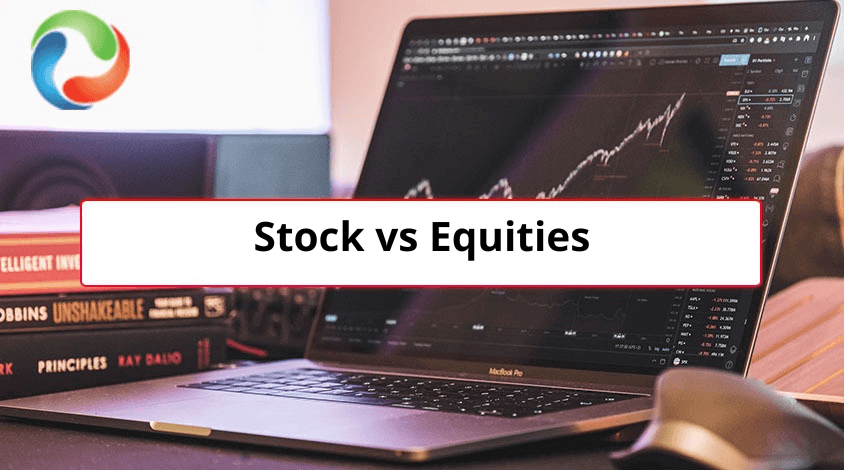What are Stocks?
A stock is the unit of ownership of a company. The stock of a single company is always said as stock in a singular form. The complete set of ownership in a company is called a stock.
Stocks come in the form of preferred stock or common stock. A common stock gives owners voting rights in forming corporate policy. Preferred stocks do not carry voting rights, but they entitle their holder to receive dividend payments.
The basic characteristics of stocks are:
- Stocks represent ownership in the issuing corporation.
- There are two main types of stock: common and preferred.
- A single share represents proportional ownership depending on the number of outstanding shares.
- Stocks come with the advantage of voting rights.
- The stock market allows for price discovery for shares of corporations and serves as a barometer for the overall economy.
Benefits for Equity Investors
- Better long-term returns as the economy and corporate earnings grow
- Dividend income from the profits distributed by the company.
- Diversification benefits and liquidity, reducing risk and increasing flexibility.
- Ownership of a share of the company and its assets.s
- Hedge against inflation, as stocks tend to outperform other investments over time.
Checkout:
- Accurate and Reliable Gold Forecast
- Reliable and Trusted Commodity Signals
- Reliable forex signals
What is Equity?
Equity represents ownership up to the extent of the investment, in a company. It is also known as Shareholder Equity. It indicates the amount of money that is left after all liabilities are paid off.
The basic characteristics of equities are:
- They are permanent in nature and do not have a maturity date.
- They bear the highest risk and reward among the sources of finance.
- They are transferable and can be bought and sold in the stock market.
- They do not get a fixed rate of dividend but depend on the profitability of the company.
- They are the source of distributions by the company to its owners.
Benefits for Equity Investors
- Potential for huge rewards: For a limited investment amount, you can get access to a huge potential payout down the line if a business exponentially grows in value.
- Dividend Payments: Some equities payout dividends from capital gains. This provides income while the overall value of the business is increasing.
- Diversification: You can invest in a large number of equities from multiple industries to diversify your portfolio through mutual funds, ETFs, or index funds.
Read:
- Forex vs stocks
- Top infrastructure stocks
- Best 3D printing stocks
- Buzzing stocks
- Top trending stocks
- Best AI backed stocks
Stocks vs Equities
Equity and stocks are terms that are often used interchangeably, but they have different meanings.
Here is a table comparing them:
| Comparison | Equity | Stock |
| Trading in the Stock market | Equity cannot be traded in the stock market as it affects the ownership power of the company. | Stocks are tradable in the market. It is traded to raise the capital value of the company. |
| Presence in the corporate world | Equity is present in all types of business forms. For example – sole proprietor, partnership, joint ventures, multi-national companies, etc. | Stock is present only in big businesses and companies. It may be not available in a small enterprise. |
| General Public | Equity is not offered, or issued to the general public. There’s no kind of involvement of the public in these. | Stocks include offering to the public. Stocks are purchased and sold to the general public based on ROI. |
| Price | The value of Equity doesn’t vary with market forces. These are not tradable so, there’s no issue of price oscillation in it. | Stocks are exchanged in the market and thus their value varies with market forces, demand, and supply. |
| Risk involved | Equity holders are directly liable for all the debt of the company. hence, Equity has more scope of risk involved in it. | Stockholders are only liable for the investment made by them. They wouldn’t bear the company’s all debt at all. And hence, it has a lesser risk involved in it. |
- Equity includes stock under it but not all stock is part of Equity. Stocks are issued for trading and getting listed on the exchange market. They are issued to raise capital for the company. Whereas equity is not listed on the stock market for trading. They represent an investment in the company.
- Stock involves the general public as they are offered to them for trading. Whereas, there is no involvement of the general public in equities. Equities are usually for potential private clients. Since the general public is the recipient of all stock trading, there are many regulatory bodies that monitor and ensure the smooth functioning of a stock trade in the market. The equity market doesn’t involve any higher body.
- Equity indicates the net worth of the company after the clearance of all debts and outside liabilities. Equities are part of the assets on the Balance sheet. On the other hand, the stock value of a company represents the market value of the company and they are not mentioned on the balance sheet separately.
- Both equity and stock are different forms of investment representing full and partial ownership of the company. Equity holders are long-term investors whereas stockholders are short-term investors
- During mergers or sell-offs, the value of stocks is part of the total value of the stock calculated for buying. Whereas, the value of Equity doesn’t get counted in valuation.
Also, learn:
- Top domestic stocks
- Best covered call stocks
- Best drip stocks
- Best stock signals
- Best stock forecast website
- Stocks vs Shares



